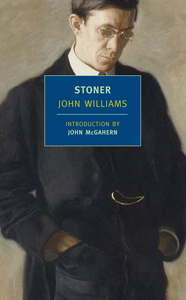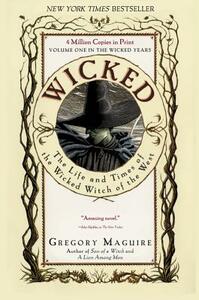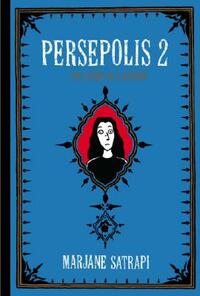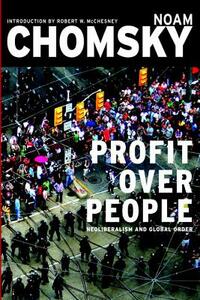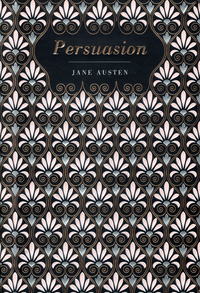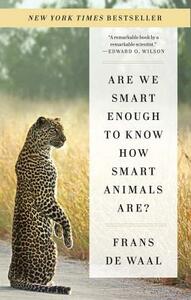Take a photo of a barcode or cover
kevin_shepherd's Reviews (563)
“In his extreme youth Stoner had thought of love as an absolute state of being to which, if one were lucky, one might find access; in his maturity he had decided it was the heaven of a false religion, toward which one ought to gaze with an amused disbelief, a gently familiar contempt, and an embarrassed nostalgia. Now in his middle age he began to know that it was neither a state of grace nor an illusion; he saw it as a human act of becoming, a condition that was invented and modified moment by moment and day by day, by the will and the intelligence and the heart.”
What starts out as a master class in stoicism gradually and painstakingly evolves into something more kinetic. In the space of 278 pages I went from detached apathy to heart wrenching empathy. This is a world where the unethical and immoral frequently emerge victorious while the diligent and principled repeatedly take it in the shorts. That strikes me as pretty close to home.
What starts out as a master class in stoicism gradually and painstakingly evolves into something more kinetic. In the space of 278 pages I went from detached apathy to heart wrenching empathy. This is a world where the unethical and immoral frequently emerge victorious while the diligent and principled repeatedly take it in the shorts. That strikes me as pretty close to home.
“Nothing short of physical handicap has ever made anybody turn over a new leaf.”
Gothic horror best read with a shot of bourbon or a glass of wine.
Meet Maurice Allington, a surprisingly likable, sex-obsessed, dipsomaniac innkeeper who knowingly dwells on the cusp of carnal debauchery and unknowingly on the precipice of Satan’s abyss. Picture Dean Martin in Hell House; One minute you’re laughing hysterically, the next you’re sleeping with a light on. I’d put this on par with Poe and Lovecraft for sheer frightful brilliance. Five stars.
Gothic horror best read with a shot of bourbon or a glass of wine.
Meet Maurice Allington, a surprisingly likable, sex-obsessed, dipsomaniac innkeeper who knowingly dwells on the cusp of carnal debauchery and unknowingly on the precipice of Satan’s abyss. Picture Dean Martin in Hell House; One minute you’re laughing hysterically, the next you’re sleeping with a light on. I’d put this on par with Poe and Lovecraft for sheer frightful brilliance. Five stars.
If historical-fiction is a "thing" then Maguire has firmly established "alternate-fiction" as a legitimate genre with his detail rich backstory of L. Frank Baum's villainous witch. I came away reminded that evil is often a matter of perception and revisiting childhood literature with an adult perspective can be a lot of fun.
“This afternoon on TV, I saw mothers who were claiming to be overjoyed and gratified by the deaths of their children. I can’t figure out if it’s faith or complete stupidity...” (pg. 99)
Marjane Satrapi is a shining example of courage and decency in the face of stifling religious oppression and cultural misogyny. If you can read this book and not love her, I don’t want to know you.
Marjane Satrapi is a shining example of courage and decency in the face of stifling religious oppression and cultural misogyny. If you can read this book and not love her, I don’t want to know you.
This is an outstanding reference source for proponents of science education and those constitutionalists fighting to preserve the separation of church and state.
In addition to descriptions of legal precedents, there are statements from over seventy different scientific organizations, educational entities, civil liberties institutions and religious groups. All of which are supportive of evolution as fundamental to the understanding and advancement of scientific study and education.
"If the world is not God's, the most eloquent or belligerent arguments will not make it so. If it is God's world then faith has no fear of anything the world itself reveals to the searching eye of science." ~Rev. Bennett J. Sims
In addition to descriptions of legal precedents, there are statements from over seventy different scientific organizations, educational entities, civil liberties institutions and religious groups. All of which are supportive of evolution as fundamental to the understanding and advancement of scientific study and education.
"If the world is not God's, the most eloquent or belligerent arguments will not make it so. If it is God's world then faith has no fear of anything the world itself reveals to the searching eye of science." ~Rev. Bennett J. Sims
It is astonishing to see how remarkably similar America’s two political parties actually are once the platitudes of pretense are stripped away. I found that realization to be a tough pill to swallow, especially now when polarization and tribalism seem to be at historic highs, but no one articulates an “inconvenient truth” better than Noam Chomsky.
Speaking to us from the relative calm of 1999, Chomsky parts the curtains of deception to reveal that the policies enacted by both parties represent the financial interests of large corporations and wealthy investors. Generations of carefully crafted political messaging have been so successful that constituents, myself included, rarely question their intent. As a result, environmental regulations have slowly eroded, taxes on the wealthiest among us have all but disappeared, public education is in shambles, and social safety nets are being dismantled. All of these things are being done under the guise of doing tremendous service to the public and the environment.
“[David Hume, 1711-1776] concluded that government is founded on control of opinion, a principle that “extends to the most despotic and most military governments, as well as the most free and most popular.” ...a more accurate version is that the more “free and popular” a government, the more it becomes necessary to rely on control of opinion to ensure submission to the rulers.”
The message being: “Don’t worry. The politicians obviously have our best interests at heart. Nothing to see here. Move along.”
Speaking to us from the relative calm of 1999, Chomsky parts the curtains of deception to reveal that the policies enacted by both parties represent the financial interests of large corporations and wealthy investors. Generations of carefully crafted political messaging have been so successful that constituents, myself included, rarely question their intent. As a result, environmental regulations have slowly eroded, taxes on the wealthiest among us have all but disappeared, public education is in shambles, and social safety nets are being dismantled. All of these things are being done under the guise of doing tremendous service to the public and the environment.
“[David Hume, 1711-1776] concluded that government is founded on control of opinion, a principle that “extends to the most despotic and most military governments, as well as the most free and most popular.” ...a more accurate version is that the more “free and popular” a government, the more it becomes necessary to rely on control of opinion to ensure submission to the rulers.”
The message being: “Don’t worry. The politicians obviously have our best interests at heart. Nothing to see here. Move along.”
“We saw the lightning and that was the guns and then we heard the thunder and that was the big guns; and then we heard the rain falling and that was the blood falling; and when we came to get in the crops, it was dead men that we reaped.” -Harriet Tubman
Glass half full - Stephen Crane captures the chaos of armed conflict so deftly that you will swear he was himself a combat veteran. He was not.
Glass half empty - Never once do Crane’s characters broach the topic of slavery. Perhaps Crane’s intent was to write about war as a generic experience, in which case the American Civil War is merely a backdrop. Or maybe he was of the opinion that succession, not slavery, was the true catalyst of this calamity (see also: Walt Whitman and Margaret Mitchell). Whatever the reason, Crane’s missed opportunity, unintentional as it may be, feels falsely narrative and historically revisionist.
Glass half full - Stephen Crane captures the chaos of armed conflict so deftly that you will swear he was himself a combat veteran. He was not.
Glass half empty - Never once do Crane’s characters broach the topic of slavery. Perhaps Crane’s intent was to write about war as a generic experience, in which case the American Civil War is merely a backdrop. Or maybe he was of the opinion that succession, not slavery, was the true catalyst of this calamity (see also: Walt Whitman and Margaret Mitchell). Whatever the reason, Crane’s missed opportunity, unintentional as it may be, feels falsely narrative and historically revisionist.
In reading this eclectic collection of 107 articles and essays, covering everything from abolition to Zionism, I am repeatedly reminded that brilliance and forthrightness were the hallmarks of all that was Hitchens.
I enjoyed this much more than I thought I would - like when your “significant other” keeps encouraging you to wear a thong and you decline because, in your mind, you imagine it made of horsehair & asbestos - but then you finally succumb to the pressure only to discover that it is a cotton & polyester blend and not all that bad...
“When any hypothesis... is advanced to explain a mental operation, which is common to men and beasts, we must apply the same hypothesis to both.” ~David Hume, 1739
Humans have underestimated the complexity and sophistication of animal minds for far too long. Like a select minority of his predecessors, Frans de Waal is a voice of reason - pitting fair and balanced rationale against the antiquated ideology of anthropocentrism.
“Although we cannot directly measure consciousness, other species show evidence of having precisely those capacities traditionally viewed as its indicators. To maintain that they possess these capacities in the absence of consciousness introduces an unnecessary dichotomy. It suggests that they do what we do but in fundamentally different ways. From an evolutionary standpoint, this sounds illogical. And logic is one of those other capacities we pride ourselves on.” (pg 234)
For a long time now I have been a volunteer at a wildlife rehabilitation facility here in Oklahoma (wildcareoklahoma.org). Over the years I have seen firsthand a few of the behaviors de Waal writes about (we work with a LOT of crows!). Whereas nothing lifts my spirits more than seeing a recuperated animal released back into its natural environment, nothing saddens me more than the human indifference for the welfare of that animal. There is a pervasive attitude around these parts that we humans are the center of the universe and that things like self awareness, compassion, empathy and grief are somehow divinely endowed to us and us alone. If you have ever advocated on behalf of animals then you know what I am talking about and you really need to read de Waal, like right now.
“I can’t count the number of times I have been called naïve, romantic, soft, unscientific, anthropomorphic, anecdotal, or just a sloppy thinker for proposing that primates follow political strategies, reconcile after fights, empathize with others, or understand the social world around them. Based on a lifetime of firsthand experience, none of these claims seemed particularly audacious to me.” (pg 265)
Humans have underestimated the complexity and sophistication of animal minds for far too long. Like a select minority of his predecessors, Frans de Waal is a voice of reason - pitting fair and balanced rationale against the antiquated ideology of anthropocentrism.
“Although we cannot directly measure consciousness, other species show evidence of having precisely those capacities traditionally viewed as its indicators. To maintain that they possess these capacities in the absence of consciousness introduces an unnecessary dichotomy. It suggests that they do what we do but in fundamentally different ways. From an evolutionary standpoint, this sounds illogical. And logic is one of those other capacities we pride ourselves on.” (pg 234)
For a long time now I have been a volunteer at a wildlife rehabilitation facility here in Oklahoma (wildcareoklahoma.org). Over the years I have seen firsthand a few of the behaviors de Waal writes about (we work with a LOT of crows!). Whereas nothing lifts my spirits more than seeing a recuperated animal released back into its natural environment, nothing saddens me more than the human indifference for the welfare of that animal. There is a pervasive attitude around these parts that we humans are the center of the universe and that things like self awareness, compassion, empathy and grief are somehow divinely endowed to us and us alone. If you have ever advocated on behalf of animals then you know what I am talking about and you really need to read de Waal, like right now.
“I can’t count the number of times I have been called naïve, romantic, soft, unscientific, anthropomorphic, anecdotal, or just a sloppy thinker for proposing that primates follow political strategies, reconcile after fights, empathize with others, or understand the social world around them. Based on a lifetime of firsthand experience, none of these claims seemed particularly audacious to me.” (pg 265)
